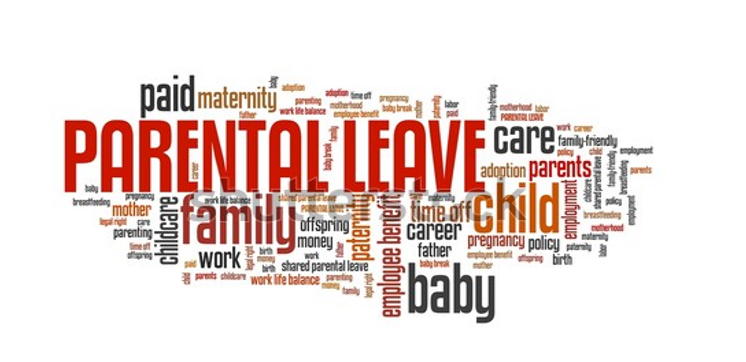Imagine you are a woman who would like to expand your family. You decide you have the social, medical, and financial resources to start planning in the next five years. Now, envision after identifying these resources that you must contend with a workplace environment that does not support parental leave. As experts in women’s mental health, we often hear stories like this from our patients.
Data from the Society for Human Resources Management found a significant decrease in maternity/parental leave, with up to 35% of companies shortening the time allowed for leave in the last year. During the height of the pandemic, many authors, social media influencers, and researchers held salient conversations on the intersection between stress, parenting and remote work. There was an on-going narrative about the importance of workplaces supporting parents and families. Despite these discussions, we continue to see a lack of adequate paid parental leave policies throughout the nation. As clinicians of the Columbia University Irving Medical Center Women’s Mental Health Program, we are acutely aware of the impact that leave can have on parents and families. Paid parental leave is linked with lower rates of maternal postpartum depression and improved child social and emotional development (Van Niel et al 2020 (https://pubmed.ncbi.nlm.nih.gov/32134836/); National Academics of Science 2016). As employee benefit enrollment season begins, we want to bring awareness to the current landscape of parental leave policies.
Currently, the US is 1 of 6 countries in the world that does not have a national paid parental leave policy (Cain Miller, 2021). Lack of a national policy leaves it up to employers and states to provide paid maternity leave, leading to significant differences in who has access to paid leave and the level of paid leave that is provided. According to the Congressional Research Service, individuals that receive wages within the bottom 25% are over 3 times less likely to receive employer sponsored leave. As for state sponsored programs, the US has only 8 states with active paid leave policies each with varying qualifications, duration, and payment amounts (Donovan, 2022).
Parents, caretakers, and health care providers need to advocate for paid parental leave as it is an important source of support. It allows time for medical recovery as it can take 6 weeks or more to physically and psychologically heal after childbirth (Jahani Shoorab et al 2019; Sultan et al 2020). Parents without leave do not have the time to seek out mental health care. Some mothers need time to address perinatal depression, anxiety, psychosis or other mood symptoms (Herman, Fitelson, & Bergink, 2020; Chattu et al 2021). Morbidity and mortality related maternal mental health can not be overstated with 20% of deaths within the first year of childbirth occurring due to suicide (Campbell et al 2021 (https://www.ncbi.nlm.nih.gov/pmc/articles/PMC8020563/pdf/jwh.2020.8875.pdf); NYS Expert Panel on Postpartum Care (https://www.health.ny.gov/community/adults/women/task_force_maternal_mortality/docs/2021-01_expert_panel_on_postpartum_care_final_report.pdf)). It is also important to consider people of color who work in low wage or temporary jobs are most impacted by mental health disparities. Additionally, new parents need time to adjust to parental responsibilities, shifts in marital or familial relationships, and changes in sleep patterns (Khajehei, 2016; Mercier, Bérubé, & Forest, 2017; Richter, Bondü, & Trommsdorff, 2022). Importantly, in light of the overturning of Roe v Wade, women who become pregnant need financial support. In states such as Mississippi, Oklahoma, Texas, Idaho, and Arkansas, restrictive abortion laws have been implemented, (Guttmacher Institute, 2022) which means that many women who have unintended pregnancies will be forced to carry to term. Parental leave is also associated with increased wellness baby visits, mother-infant bonding, and vaccinations, as well as a general decrease in mortality rates (Van Niel et al 2020 (https://pubmed.ncbi.nlm.nih.gov/32134836/)).
In closing, all of us need to work together in addressing women’s mental health in tandem with broadening state and federal safety nets around parental leave. While there have been efforts made by Joe Biden’s presidential cabinet in creating a bipartisan national standard for paid parental leave, (White House, 2021)we need to do our part as well. Reach out to your federal and state legislators and let them know that this is an important issue.. If you don’t know who they are, visit https://www.congress.gov/members/find-your-member (https://www.congress.gov/members/find-your-member) or https://www.house.gov/representatives/find-your-representative (https://www.house.gov/representatives/find-your-representative). You can also donate toward causes that provide advocacy around paid parental leave and reproductive rights, such as Planned Parenthood, the ACLU, and the National Women’s Health Network. If there are issues at work around paid leave, contact the U.S. Equal Employment Opportunity Commission (EEOC) at 1-800-669-6820. Lastly, we also recommend for individuals to reach out to their employers to learn more about their companies leave policies and actively advocate through management if the leave policies are inadequate.



